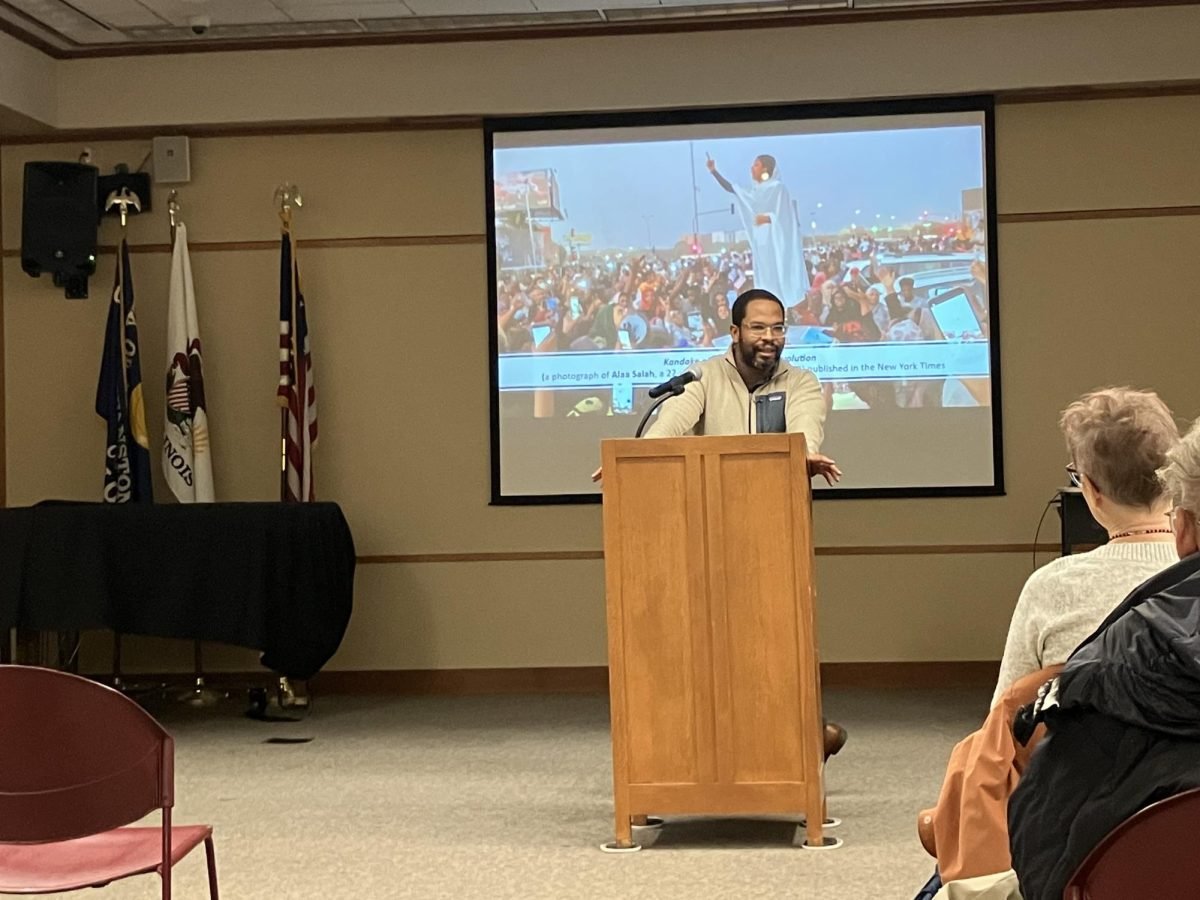The Evanston Environment Board discussed divestment from fossil fuels, Evanston’s 2023 leaf blower ordinance and transportation Thursday evening.
In early 2024, Evanston released its Sustainability & Resilience 2024 Action Agenda which included a point about researching divestment from fossil fuels. At the meeting, Ald. Jonathan Nieuwsma (4th) said he and some high school students from E-town Sunrise looked into possible divestment for the city of Evanston’s finances.
As of January 31, Evanston had $69 million in the bank with $48 million in Byline Bank and $21 million in Wintrust Bank, Nieuwsma said.
“Neither one of those banks are the Atlas for fossil fuel,” Nieuwsma said. “They’re not Chase Bank. They’re not U.S. Bank. They’re not Citibank. If (we) had money in those banks, we might be having a different discussion.”
Nieuwsma also said the city of Evanston no longer controls its almost $200 million of police and fire pensions. Recently, all municipal pension funds in Illinois were aggregated into one fund that the state controls, he said.
The board also decided that lobbying the state board for municipal pension funds divestment would not be worth the time and energy.
“(Evanston) city finances are not structured in such a way that it makes sense for us to pursue divestment from fossil fuels,” Nieuwsma said.
Another key issue brought up in the meeting was issues with Evanston’s 2023 leaf blower ordinance that banned gas- and propane-powered leaf blowers.
Environment Board Co-Chairs Michelle Redfield and Matt Cotter wrote a memo advising City Council to amend the leaf blower ordinance. Though the ordinance has made important progress in reducing greenhouse gas emissions, it has caused many conflicts that indicate issues with the enforcement of the ordinance, they wrote.
The Daily previously reported that landscapers said people in the community have been harassing them by taking photos and videos of them working with prohibited leaf blowers to report to the city under this ordinance.
“Relying on neighbors to report violations leads to confrontation, deeply harms relationships and filters enforcement through social biases,” Redfield and Cotter wrote. “The responsibility for providing the protections outlined in this ordinance must fall on the City and not the residents.”
The board requests the city spend another $120,000 on grants for private businesses to buy electric leaf blowers. The memo also outlines the need for community engagement because some community members were unaware of the leaf blower ordinance.
The board voted in favor of the memo. However, Nieuwsma said though he acknowledged the ordinance disproportionately impacted Hispanic businesses and enforcement of the ordinance could be better, he found the issue to be consuming too much of the board’s time.
“There are really important things that are directly impacting climate that we are not focusing on because we can’t get this leaf blower (ordinance) behind us,” Nieuwsma said.
Evanston’s new transportation and mobility coordinator Sarah FioRito introduced some of her projects including potential improvements to the Metra and CTA, bikeability and walkability of Evanston and accessibility for sidewalks and transit systems.
FioRito said she hopes to focus on all these issues at once, noting people are relying on all the different forms of transportation every day while addressing environmental concerns.
“I do see a huge amount of potential for transportation progress to make a positive impact on Evanston’s climate impact, especially the possibility of providing people with high quality options of alternatives to the car,” FioRito said.
Email: [email protected]
Related Stories:
— Evanston Environmental Justice Conversation Series hosts environmental equity speaker, panel
— Evanston Environment Board debates lifting plastic bag ban and adding bag tax


















